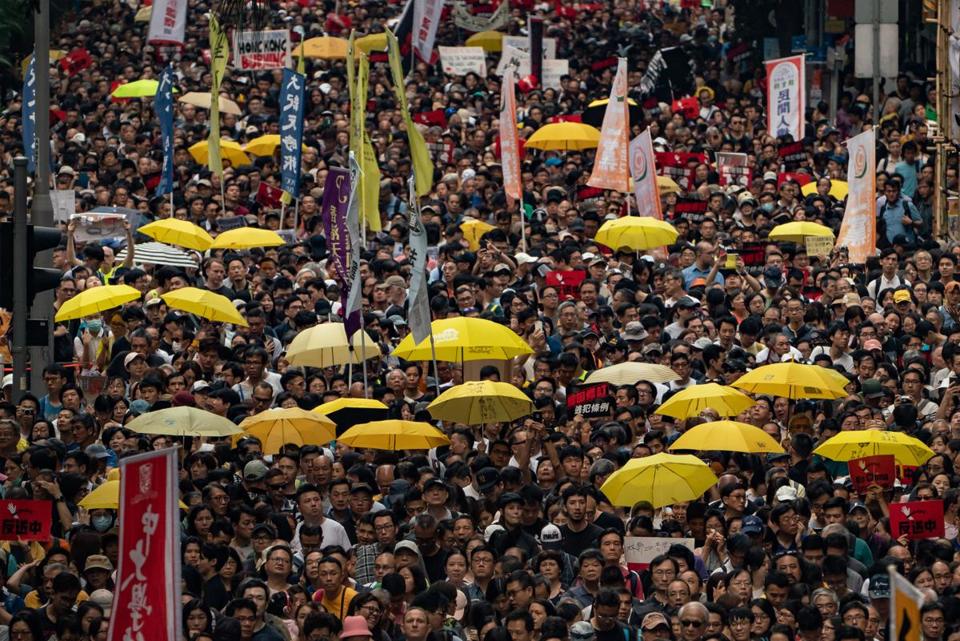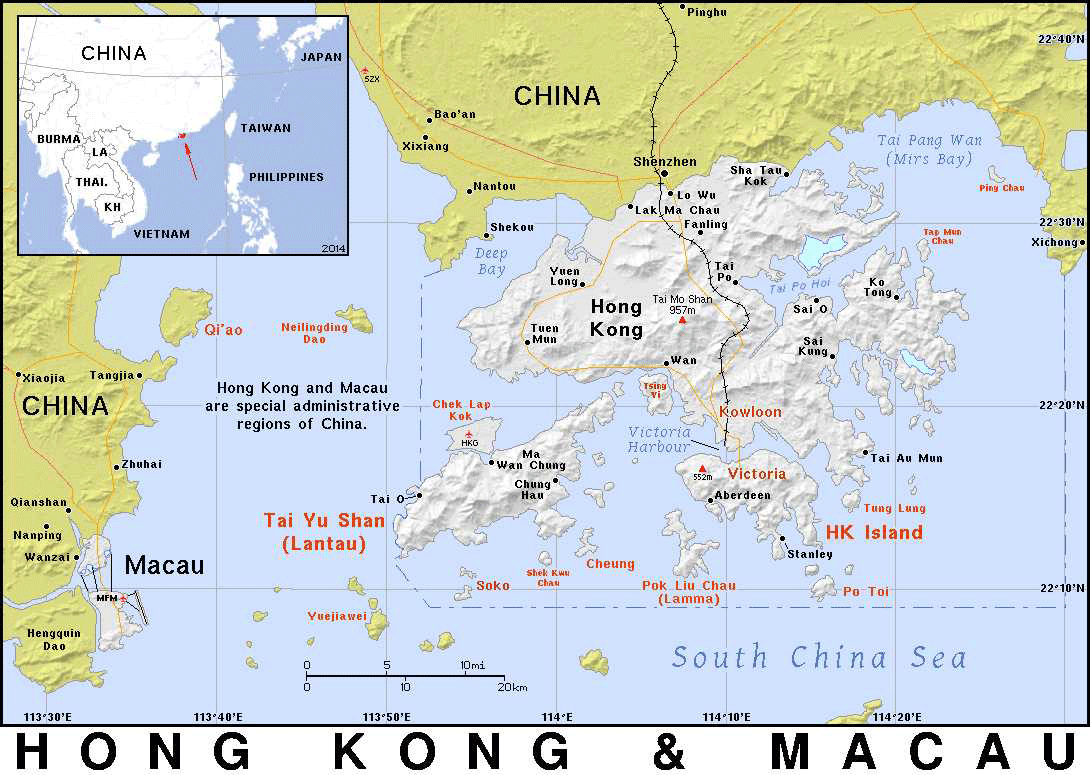World #2 – Thousands march in Hong Kong against extradition law
Tuesday's World Events — Posted on April 30, 2019
HONG KONG (AP) — Thousands of protesters marched through downtown Hong Kong on Sunday in opposition to changes to an extradition law widely seen as eroding the territory’s independent legal system.
Many of those taking part carried yellow umbrellas, recalling Hong Kong’s massive 2014 pro-democracy protests, the leaders of whom have been sentenced to up to 16 months in prison.
Hong Kong police said around 22,800 people took part in Sunday’s protest. [Reuters reports “organizers estimated 130,000 turned out – making it one of the largest street protests in the city for several years.”]
Participants carried placards accusing Hong Kong leader Carrie Lam of “selling out” the territory, and called on her to resign.

Demonstrators in Hong Kong protested against a bill that would allow citizens to be extradited to China (Photo: Anthony Kwan/Getty)
Revisions to the law would make it easier to send criminal suspects to mainland China, where they could face vague national security charges and unfair trials.
“Hong Kong and China have completely different legal systems,” said marcher Roland Lo, 49. “Creating a loophole that could mean a Hong Kong person gets extradited to China to face prosecution there, that completely destroys the guarantee of human rights and legal protection of one country, two systems.”
Under that system, Hong Kong was guaranteed the right to retain its own social, legal and political systems for 50 years following its handover from British to Chinese rule in 1997.
Another marcher, Amanda Wong, 40, said it was important to exercise those rights while they were under perceived attack.
“We have to come out to march. It doesn’t matter if we can change the situation or not, we just have come out while we still have the chance,” she said.
Business, legal, human rights and journalists groups have expressed concerns over the proposed changes, saying they will damage Hong Kong’s reputation for legal independence.
The amendments expand the scope for the transfer of criminal suspects to China and remove the legislature’s right to scrutinize individual extradition decisions filed by Hong Kong’s chief executive.
Published at AP .com on April 28. Reprinted here for educational purposes only. May not be reproduced on other websites without permission from the Associated Press.
Background
- Hong Kong was a colony of the United Kingdom, ruled by a governor for 156 years from 1841 (except for four years of Japanese occupation during WWII) until 1997, when it was returned to Chinese sovereignty.
- China had to accept some conditions, stipulated in the Sino-British Joint Declaration, such as the drafting and adoption of Hong Kong's mini-constitution before its return.
- The Basic Law ensured Hong Kong will retain its capitalist economic system and own currency (the Hong Kong Dollar), legal system, legislative system, and people's rights and freedom for fifty years, as a special administrative region (SAR) of China.
- Set to expire in 2047, the current arrangement has permitted Hong Kong to function as its own entity in many international settings (e.g., WTO and the Olympics) rather than as a part of China.
- People in Hong Kong generally hold Hong Kong SAR passports rather than Chinese passports.
- The official languages are a major factor besides the history of the former colony that has made Hong Kong and China distinct from each other, as Cantonese and English are the most widely used languages in Hong Kong while Mandarin is the official language of China.
- The central government in Beijing maintains control over Hong Kong's foreign affairs as well as the legal interpretation of the Basic Law. The latter has led democracy advocates and some Hong Kong residents to argue that the territory has yet to achieve universal suffrage as promised by the Basic Law, leading to mass demonstrations in 2014. (from a wikipedia post on "one country, two systems")

